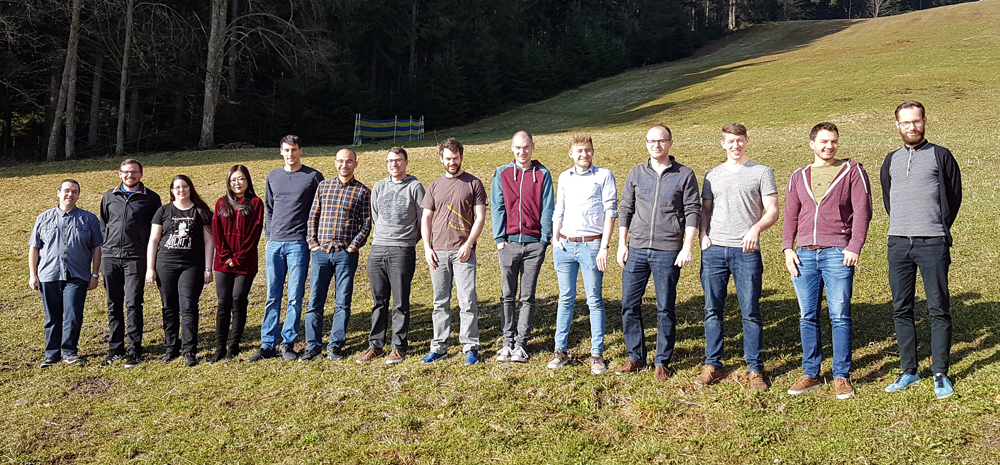As in the previous years, the third instance of the SFB-TRR 161 doctoral retreat took place in the middle of the black forest, at the Waldhotel Zollernblick in Freudenstadt, from April 4 to 6, 2018. Besides the goal of getting in touch with each other, the focus in this retreat was on the exploration of possible collaborations for the second funding period.
When we arrived, we recognized that a lot had changed, compared to the last year. There was a huge building site, which annoyed some people more and others less. Fortunately, I was not bothered by any construction noise in my room at all. After a short round of self-introductions we had the first part of the scheduled workshops. One workshop focused on “machine learning” and the other one on “visualization methods and tools”. We spent the evening at an associated hotel down in the village, playing several board games. Especially the two games ‘Kakerlakensalat’ and ‘Dobble’ ensured a quite high volume level.
The second day was dedicated to a kind of speed dating approach between people from Konstanz, Stuttgart, Tübingen and München. We developed a series of interesting potential collaboration topics, that we collected in a huge matrix. The topics were to serve as input for the collaboration sections in our new proposal. In the evening we went to a small restaurant in a deep valley “Wirtshaus Poppeltal”, surrounded by the impressive black forest for dinner with some really nice local dishes.

On Friday, we continued the workshops and after a common lunch we left the hotel, having a lot of plans for future collaborations in mind.
We are looking forward to the next instance, where all the “nice dudes and dudettes” (this is another useful term we learned during the retreat) will meet again.
